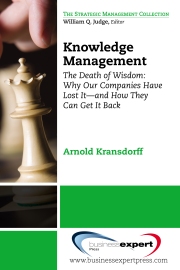NEW: HOW TO AVOID THE EXPECTED MISMANAGEMENT OF BORIS JOHNSON’s POST-COVID RECOVERY PROJECTS
There is one hugely conspicuous promise embedded in Boris Johnson’s latest post-coronavirus recovery plan that details where he’s going to spend £5 billion. His build build build mantra to construct hospitals, roads, schools, homes, prisons, new broadband and other improvements to parks, High Streets and transport facilities involves a lot of individual and big projects – and you know how good we are at doing projects.
If experience teaches us anything, many of them will be over-budget and/or overdue, which means there’s going to be much poor value for the taxpayer. For the uninformed, the Government’s admitted botch rate is high – in 2018, 80% of projects across various government departments were classed as being either in doubt, hindered by problems or virtually unachievable. A third of projects had costs of more than £1 billion.
Quoting the imposed urgency of the Covid-19 challenge and the Nightingale hospitals and ventilator responses, the Prime Minister insists that the challenge they provided was evidence that the projects could be done right and done better. Infrastructure, he said, had the power to rebuild and repair the country – “and we will”.
So why the scepticism? And what to do about it? An examination of the record is instructive.
There is a huge amount of detail from the many routine post-project reviews that explain the why, all suggesting – nay confirming – that we don’t learn well from experience. So why are we so poor at this most systemic of management skills?
The reflection aspect of learning
It’s because we don’t know how to properly reflect and learn. It’s not only my opinion. The observation has been around for almost a century, when the celebrated US educational reformer John Dewey, observed that “We don’t learn from experience. We learn from reflecting on experience.” Since then the skill’s been updated by the likes of Professor David Kolb, who has refined the reflection part of the learning process.
The reason why reflection is so important is that the passage of time always changes the reality of prior experience, which means that it forever needs to be applied to new circumstances and environments. It’s a skill that educators and trainers have yet to pass on in sufficient measure alongside the inescapable reality that coal-face decision makers also have to be aware of their employers’ corporate experiences. And the reason for this element’s absenteeism is the unacknowledged phenomenon that accounts for the biggest change in the workplace for more than 40 years – the flexible labour market.
As unexpected as this reason might be, the simple fact of high staff turnover – average tenure is around five years in the UK, less in the US, with project managers among the more mobile – means that employers’ awareness of their unique and hard-won corporate knowledge and experience at all levels of specialism is low. It has walked out of the front door, leaving little for rolling generations of employees to reflect upon and, ipso facto, little possibility of actual learning. The direction of progress is not north …..
Because all organisations are different, the lesson this teaches is that non-employer experiences are only partially relevant to good decision making. And that while short-tenure employment provides the opportunity for organisations to more quickly adapt to changing market opportunities, the downside of continuous workplace disruption and corporate knowledge loss needs to be better accommodated by the support of all the players in Boris Johnson’s open cheque book plan, namely the finance provider, the background educators/trainers, the project managers and their subordinates. Which brings up the question of what to do?
Simply replace what short tenure removes – i.e. the non-email content of important individuals’ know-how known as tacit or cognitive knowledge. This type of knowledge is mainly unspoken and uncommunicated, subtle, obscure and context-, co-worker- and organisation-specific, all of which is buried in tried-and-tested experience that academics describe as the source of competitive advantage.
This can be done through skilful and specialised oral debriefings and delivered in transcript, audio or video format. For projects, this should be done ahead of departures for the benefit of replacements or, if the project is especially lengthy, at regular intervals during the project cycle.
At a stroke this helps to smooth jobs disruption, prevent new hires from having to reinvent the corporate wheel, provide the lost evidence to allow proper reflection by both the new kids on the block and colleagues, improve decision-making and disallow so much poor value for the taxpayer. It’s also called productivity, that which the UK is famously under endowed. Alongside his ‘Build Build Build’ and his ‘Jobs Jobs Jobs’ refrains, Mr Johnson has invoked Tony Blair’s Education, Education, Education mantra of 2007.
Another promise from on high, another under-delivery or …?
Click here: mrcorporateamnesia.com provides a step-by-step DIY TOOLKIT for employers to do knowledge capture and transfer themselves. It explains the issues around knowledge ownership, knowledge sharing and how best to capture and learn from short-, medium- and long-term organisational memory. The recognised tools used have been customised to accommodate today’s short-tenure employment.




Leave a comment